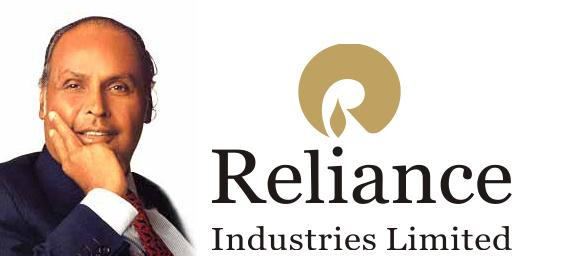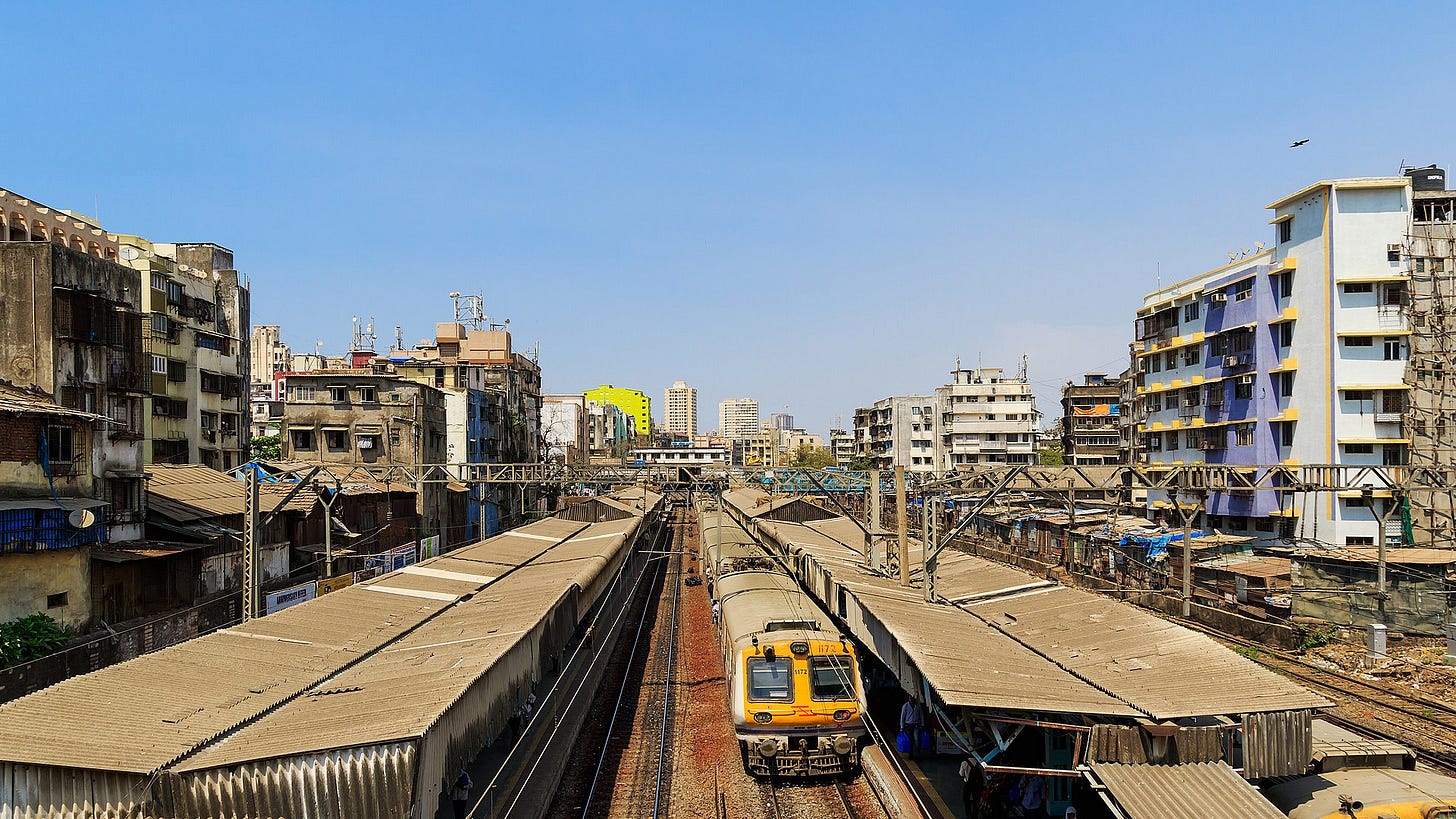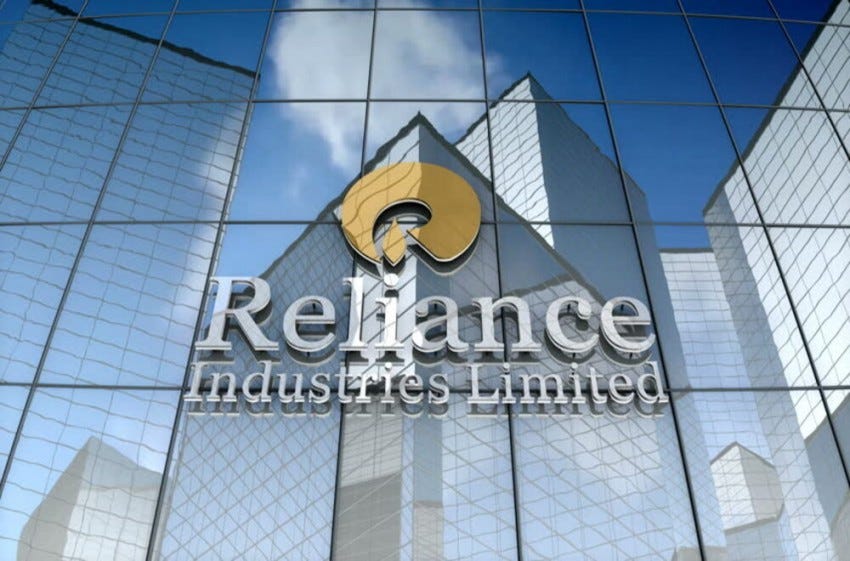Business spotlight: Reliance Industries
A success story about how a visionary entrepreneur, starting from a modest 33 sqm. office in 1958, grew his business to become a powerhouse in India's industrial revolution and economic growth.
Analyst and investor Bhaumil Patel writes about a visionary entrepreneur who redefined the potential of business. The entrepreneur’s success story inspired a generation of younger entrepreneurs and global business leaders. He challenged conventional wisdom and set revolutionary precedents, contributing to the social and economic development of a nation. His corporate philosophy was “Think big. Think differently. Think fast. Think ahead. Aim for the best.” Under his visionary leadership, his business became the largest conglomerate in India, representing nearly three percent of India’s economic wealth today. We hope you’ll find Bhaumil’s article insightful.
“Whatever action a great man performs, common men follow. And whatever standards he sets by exemplary acts, all the world pursues.” — Bhagavad Gita 3:21
Reliance Industries Limited (NSEI: RELIANCE) stands today as one of India’s largest conglomerates, with diversified interests in industries such as petrochemicals, refining, oil and gas exploration, retail, telecommunications, and media. Founded by the visionary Dhirubhai Ambani, the company has grown over the past 65 years, despite numerous adversities, to become a behemoth at the forefront of India’s industrial revolution, playing a crucial role in transforming the country’s economy.
Reliance has been a trailblazer in several sectors, introducing new technologies and business models that have revolutionized entire industries.
In this article, I delve into Reliance’s journey, exploring its key business segments, financial performance, and prospects.
History
Dhirubhai Ambani established Reliance Commercial Corporation in 1958, initially as a small commodities trading firm with a focus on spices and polyester yarn on Narsi Natha Street in Masjid Bunder. It operated from a 350 sq. ft. (33 sqm.) room with a telephone, one table, and three chairs. Initially, they had two assistants to help them with their business.
After the partnership ended in 1965, Dhirubhai continued to build on the polyester business of the firm. In 1966, Reliance Textile Industries was incorporated in Maharashtra, and it established a synthetic fabrics mill in Naroda, Gujarat, that same year. Eventually, on May 8th, 1973, it became Reliance Industries. The company diversified into textiles in 1975, and their “Vimal” brand became a major player in later years. The company’s Initial Public Offering (IPO) in 1977 was oversubscribed by seven times, and in 1979, they merged with textiles company Sidhpur Mills. In 1980, the company expanded its polyester yarn business further by partnering with E. I. du Pont de Nemours & Co., U.S. to set up a Polyester Filament Yarn Plant in Patalganga, Raigad, Maharashtra.
The opening of the company’s first fabrics mill in Naroda, Gujarat, marked the beginning of a journey that would change the course of the Indian economy. Dhirubhai’s entrepreneurial spirit and business acumen helped the company grow rapidly, and by the 1980s, Reliance had become the largest textile manufacturer in the country.
In the 1990s, Reliance diversified into petrochemicals, refining, and oil and gas exploration. The commissioning of the Jamnagar refinery in 1999 marked a significant milestone for the company, as it became the largest refinery in the world. Reliance also ventured into telecommunications, with the launch of Reliance Communications in 2002. The company’s foray into retail with Reliance Fresh in 2006 and Reliance Jio’s entry into the telecom sector in 2016 were watershed moments in India’s retail and telecom sectors.
Business segments
Reliance’s operations are spread across various business segments, with its oil and gas exploration and production segment being one of the largest in India. Reliance operates several oil and gas fields in India and overseas.
Reliance’s refining and petrochemicals business is another significant segment. The company’s Jamnagar refinery is among the largest in the world, with a refining capacity of 1.24 million barrels per day. Reliance’s petrochemicals business produces a range of products, including polyesters, polymers, and chemicals, and is among the largest in the world.
Reliance’s retail business operates a range of formats, from hypermarkets to convenience stores. The company’s retail footprint spans over 12,000 stores across India, and it is one of the largest players in the organized retail sector in the country.
Finally, Reliance’s telecommunications business, Reliance Jio, has disrupted the telecom sector in India since its launch in 2016. With its affordable data plans and extensive network, Reliance Jio has become the largest telecom operator in India, with over 425 million subscribers.
Reliance Jio in charts

Financial performance
Reliance is undoubtedly one of India’s most prominent companies, and its impressive financial performance and market position further affirm its status. With a market value ranking of 54th globally, Reliance’s 2022 revenue of ₹8,739 billion ($106 billion) and current market capitalization of ₹14,777 billion ($180 billion) are significant indicators of its dominance in the Indian economy.
Furthermore, the company’s 2022 profitability of ₹636 billion ($7.79 billion), low debt level (35% to equity), and stable share price over the past three years demonstrate its resilience in the face of economic uncertainty. Reliance’s high-quality earnings further solidify its position as a dependable and successful business.
Overall, Reliance’s position as India’s largest company and its ranking among the top companies in the world reflect its resilience, stability, and strong performance. As the company continues to expand and innovate, it is likely to remain a key player in the global business landscape for years to come.
Prospects
Reliance is poised for continued growth and success, with its ongoing expansion of operations and investments in cutting-edge technologies. The company recently revealed plans to construct a new solar manufacturing unit in Gujarat, with an investment of more than $10 billion. Additionally, Reliance is set to expand its retail and telecom businesses to further cement its position as a leader in these sectors.
In addition to its focus on growth, Reliance is also dedicated to sustainability and renewable energy. The company announced a $10.1 billion investment in a new green energy business in 2021. The initiative will concentrate on solar, wind, hydrogen, and fuel cells, as part of Reliance’s objective to achieve net-zero carbon emissions by 2035.
Furthermore, Reliance’s impressive financial performance is projected to continue, with a forecasted annual earnings growth rate of 14.5% over the next three years. The company’s earnings have already grown at a rate of 11.9% per year over the last five years, highlighting its success and potential for continued prosperity.
Conclusion
Reliance Industries has emerged as a powerhouse in India’s industrial revolution, with its diverse portfolio of businesses and commitment to sustainability and innovation. The company’s significant investments in renewable energy and cutting-edge technologies position it to be at the forefront of shaping India’s future. With strong financial performance and promising prospects for continued growth, Reliance Industries is a key player in the Indian economy and a force to be reckoned with in the global business landscape.










